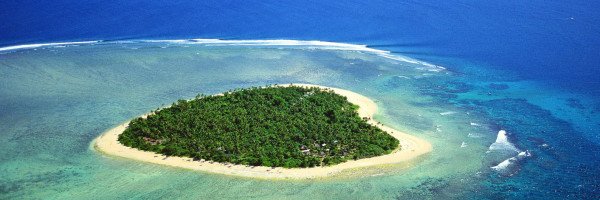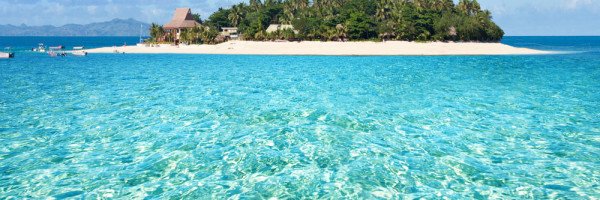The Historical Context of Indigenous Practices in Fiji
Fiji’s rich cultural tapestry is woven from the traditions and practices of its indigenous peoples, whose connection to the land and sea is profound. Historically, these practices have emphasized sustainability and respect for nature, which are central themes in many of Fiji’s nature festivals. The Fijian way of life is intrinsically linked to the rhythms of nature, with festivals celebrating the changing seasons, harvests, and marine life. These festivals serve not only as a means of preserving indigenous traditions but also as platforms for promoting environmental stewardship. One of the most significant festivals is the Fiji Wildlife Festival, which showcases the biodiversity of the islands while honoring the ancestral knowledge that has been passed down through generations. This festival emphasizes the importance of protecting marine ecosystems and the unique wildlife that thrives within them. By participating in such festivals, local communities reinforce their cultural identity while fostering a collective responsibility towards environmental conservation, a concept that resonates strongly in New Zealand as well, where indigenous Maori practices often mirror similar themes of stewardship and respect for nature.The Role of Festivals in Environmental Education
Fiji’s nature festivals are not merely celebratory events; they play a crucial role in environmental education. Through workshops, exhibitions, and guided tours, these festivals provide attendees with invaluable information about local ecosystems and conservation efforts. For instance, during the Fiji Wildlife Festival, participants can learn about the various flora and fauna native to the islands and the threats they face from climate change and human activity. Such educational initiatives are vital for raising awareness about environmental issues and fostering a sense of responsibility among participants. In New Zealand, similar festivals, such as the Wild Dunedin Festival, focus on educating the public about local wildlife and conservation efforts. Both nations can benefit from collaborative efforts in sharing knowledge and resources, thus enhancing the effectiveness of their environmental education programs.Celebrating Biodiversity through Cultural Practices
The connection between culture and biodiversity is a significant theme in Fiji’s nature festivals. Indigenous practices often incorporate sustainable methods of harvesting natural resources, which are celebrated during these events. For example, the Fiji Wildlife Festival features traditional fishing demonstrations that highlight sustainable techniques passed down through generations. These practices ensure that local fisheries remain viable for future generations, illustrating a deep respect for the ocean’s bounty. The celebration of biodiversity is also mirrored in New Zealand’s indigenous Maori practices, where traditional harvesting methods are celebrated and shared during events like the Māori Innovation Festival. Both Fiji and New Zealand provide valuable opportunities for cultural exchange, where indigenous communities can share their unique practices and learn from one another, reinforcing the importance of biodiversity and ecological balance.Community Engagement and Participation
Community involvement is a cornerstone of Fiji’s nature festivals. Local residents are encouraged to participate in planning and executing these events, ensuring that their voices and cultural identities are represented. This active engagement fosters a sense of ownership and pride in the festival, as the community comes together to celebrate their heritage and commitment to environmental stewardship. In New Zealand, community-led initiatives like the Pukaha Mount Bruce Conservation Trust exemplify similar values, where local communities actively participate in conservation efforts. By collaborating on environmental projects and festivals, both Fiji and New Zealand can strengthen community ties and promote sustainable practices that benefit both people and the planet.Art and Expression as Tools for Conservation
Art plays a vital role in Fiji’s nature festivals, serving as a medium for expressing cultural identity and promoting conservation. Local artists often showcase their work during these events, using traditional and contemporary methods to highlight the beauty of Fiji’s landscapes and wildlife. Through visual arts, music, and performance, these artists convey powerful messages about the importance of preserving the natural environment. In New Zealand, similar approaches are taken during festivals such as the Auckland Arts Festival, where artists address environmental themes through their work. By fostering creativity and encouraging artistic expression, both Fiji and New Zealand can inspire a deeper connection to nature and raise awareness about conservation issues, ultimately driving positive change in their respective communities.The Impact of Climate Change on Festivals and Traditions
Climate change poses a significant threat to the natural environments celebrated during Fiji’s nature festivals. Rising sea levels, increased storm intensity, and changing weather patterns jeopardize the ecosystems that provide the foundation for these cultural events. As indigenous practices are closely tied to the land and sea, the impact of climate change can also affect the cultural identity of communities. In New Zealand, the Maori community faces similar challenges, with climate change threatening traditional fishing grounds and agricultural practices. Both nations are increasingly recognizing the need to integrate climate resilience strategies into their cultural practices and festivals. By addressing these challenges collaboratively, Fiji and New Zealand can develop adaptive strategies that honor their cultural heritage while safeguarding their natural environments for future generations.Future Directions: Building Sustainable Festivals
As Fiji continues to celebrate its rich cultural heritage through nature festivals, there is a growing emphasis on sustainability and environmental resilience. Future festivals will likely incorporate more eco-friendly practices, such as waste reduction, carbon offsetting, and partnerships with conservation organizations. This shift towards sustainability not only enhances the festivals’ relevance but also ensures that they remain viable in the face of changing environmental conditions. New Zealand’s approach to sustainable festivals, such as the Wellington Jazz Festival, serves as an excellent example of how to balance celebration with responsibility. By sharing best practices and resources, both Fiji and New Zealand can lead the way in creating festivals that honor their cultural connections while promoting environmental stewardship. The ongoing collaboration between these two nations can inspire others to follow suit, fostering a global movement towards sustainable practices in cultural celebrations.FAQs
What are the main cultural themes of Fiji’s nature festivals?
Fiji’s nature festivals, such as the Fiji Wildlife Festival, emphasize themes of environmental stewardship, indigenous practices, and the celebration of biodiversity. These festivals serve as a platform for showcasing traditional knowledge and sustainable practices that have been passed down through generations.
How do indigenous practices influence the Fiji Wildlife Festival?
Indigenous practices play a crucial role in the Fiji Wildlife Festival by highlighting traditional ecological knowledge. Local communities share their sustainable fishing techniques, medicinal plant uses, and conservation strategies, reinforcing the connection between cultural heritage and environmental protection.
What types of activities can attendees expect at the Fiji Wildlife Festival?
Attendees at the Fiji Wildlife Festival can expect a variety of activities, including nature walks, workshops on traditional crafts, educational talks on local wildlife, and cultural performances. These activities aim to educate visitors about Fiji’s unique ecosystems while celebrating indigenous culture.
How do nature festivals promote environmental stewardship in Fiji?
Nature festivals in Fiji, including the Fiji Wildlife Festival, promote environmental stewardship by raising awareness about conservation issues and encouraging sustainable practices. They provide a platform for local communities to engage in discussions about protecting their natural resources and highlight the importance of biodiversity preservation.
What role do local communities play in organizing these festivals?
Local communities play a vital role in organizing nature festivals like the Fiji Wildlife Festival. Their involvement ensures that the festivals reflect their cultural values and priorities, fostering a sense of ownership and empowerment while showcasing their commitment to environmental conservation.
How do these festivals contribute to tourism in Fiji?
Fiji’s nature festivals, such as the Fiji Wildlife Festival, contribute to tourism by attracting visitors interested in experiencing the unique cultural and natural heritage of the islands. These events promote eco-tourism, encouraging sustainable travel practices and offering tourists the opportunity to engage with local communities.
What are some key environmental issues highlighted during the festivals?
During festivals like the Fiji Wildlife Festival, key environmental issues such as coral reef degradation, climate change, and the protection of endangered species are highlighted. These discussions aim to inform attendees about the challenges facing Fiji’s ecosystems and inspire collective action towards their preservation.
References
- Explore Fiji’s Nature Festivals – A comprehensive overview of Fiji’s cultural and natural heritage, highlighting various festivals that celebrate indigenous practices and environmental stewardship.
- Fiji’s Conservation Initiatives – An article from National Geographic discussing the role of indigenous communities in conservation efforts and the significance of cultural practices in protecting Fiji’s environment.
- Cultural Heritage and Environmental Sustainability in Fiji – A research paper examining the intersection of cultural heritage and environmental practices among indigenous Fijians.
- Fiji – World Wildlife Fund – An overview of Fiji’s unique ecosystems and the importance of indigenous stewardship in preserving biodiversity in the region.
- UNESCO’s Cultural Heritage Initiatives – Insights into how UNESCO supports the preservation of indigenous practices that contribute to environmental sustainability in various cultures, including Fiji.







